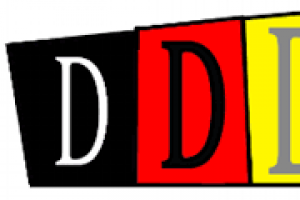Disc Degeneration Disease
It
is not really a disease at all but rather a degenerative condition that at times can produce pain from a degenerative disc. It is actually a part of ageing and
overtime all people will exhibit changes in their discs consistent with a
greater or lesser degree degeneration. Basically it is wear and tear of the
discs. As we get older the hydration within the discs tends to leave and you
end up with a drier disc.
Many
practitioner believe that disc disease is a common cause of low back pain and
neck pain. Low back pain is common. The main cause for low back pain is a
strain of the muscles ,ligaments or tendons connected to the back bone.
Sometimes it is the cushion between the bones which is strained and which
bulges out and presses on the nearby nerves (as in sciatica).
Moderate
exercise ,lifestyle modifications and good nutrition can help prevent painful
and disability symptoms. Try to avoid constipation, cough ,cold, gas as they
worsen the condition.
Treatment
The
treatment approach generally focuses on taking away the inflammation from
around the disc and stretching and strengthening the appropriate muscles
through exercise. When symptoms are persistent despite these exercises then
epidural steroid injections will help. It is not going to put hydration back
and nor will change the tear within the disc.
Then
what it will do?
It
will reset the inflammatory clock back to zero.
Important
points :-
-1Tbs
of honey with warm water in morning and evening reduces the inflammation.
-Heat application- A heating pad can relax
muscles or joints around the degenerative disc that have tightened up. Applying
heat will warm up the lower back muscles ,make stretching and exercise easier
and decreasing the chance of injury.
-Patients
can also take advantage of
alternative
therapies
like massage therapy, acupuncture etc. Often patients find that a
combination of therapies work well such as massage therapy , heat application, medicines,
exercise etc.
-Once
pain is adequately controlled (it will most likely not go away completely) the
most important thing patients can do is
stay
active
.
Exercise – Once the pain is under control and
reduced to more tolerable level patient can do
exercise to improve the longer term course of degenerative disc
disease.
It will increase the flow of blood and oxygen
and other nutrients to the back and discs and thereby keeping them hydrated as
possible. 30 minutes exercise like walking, biking or swimming can maintain
flexibility and mobility as well as control weight. For those who are in too
much pain to tolerate much exercise a gentle approach is best.
Correcting posture and using low back
support
–
Sitting upright in an ergonomic chair that provides low back support for the
natural curve in the lumbar region can prevent irritating disc. Use good
posture to relieve pressure on your lower back.
Changing positions often relieves stress
and increases blood flow. Just standing and walking 10 paces every 20 or 30
minutes is enough to prevent low back stiffness from sitting.
Sleep on comfortable and supportive
mattress- We spend at least 1/3
rd of our lives in bed. Therefore
sleeping in a proper bed is extremely important in maintaining the health of
the neck and spine.
A healthy diet plays a big role in moderating
the low back pain. Patients can achieve both hydration and oxygenation with
small changes such as
a)Hydration can be improved by sipping water
throughout the day as well as reducing use of caffeinated drinks such as
coffee, tea and soda etc.
b)Alcohol use should be minimized. Alcohol decreases
hydration.
c)Smoking should be avoided as it interferes with
nutrition for the spinal discs by preventing the good oxygen flow needed to keep
them healthy.
Sun therapy – Hot sun rays perform
like a miracle in relaxing tight muscles , tendons and ligaments. This is
especially true during cold weather. The sunlight is also a good way to
increase vitamin D level during the winter when it tends to be lower.
Massage therapy – Massage helps in increasing
the flow of blood , oxygen, nutrients etc in that area, But deep massage can
also make the condition worse when excessive pressure causes further damage to
the already injured tissues.
Ultrasound – This is a very gentle process that
sends heat to the area of the degenerative disc disease. The heat stimulates
blood flow. Allowing for more significant movement and less stiffness. That
reduces pain.
Role of diet-
While
there is no special diet for DDD , Maintaining a healthy weight by following a
balanced diet may help prevent added stress to the spine. If you need to lose
weight ,decreasing your daily intake by 250 calories to 500 calories in a day
can help you lose ½ pound to 1 pound in a week. Rest of diet should be nutrient
rich ( fruits ,vegetables, whole grains ,low fat dairy foods and lean sources
of protein such as poultry, seafood, beans). Get enough fibrous foods to avoid
constipation.
Eat
a high protein diet. It consists primarily of animal protein, red meat, fish, sea
food.
Highly
alkaline diet with at least 80% raw foods can go a long way in helping arrest chronic
inflammation and tissue degradation.
NOTE
– Scientist have discovered that high BP
and high cholesterol also affect the arteries carrying blood and other
nutrients to the discs of spine. Eating heart healthy foods rich in omega 3
fatty acids like salmon ,walnuts ,flax seeds and having a diet rich in whole
grains ,beans and nuts will improve the health of your spine by improving your
blood pressure.
Most
patients find that they can keep the pain to a tolerable level and continue to
enjoy their activities without undergoing any surgery by following these above tips.
Dr. Suman Setia BAMS DNHE PGDHHM
Also click to see : 1) Parkinson Disease
3) Stomach Infection (Gastritis)

